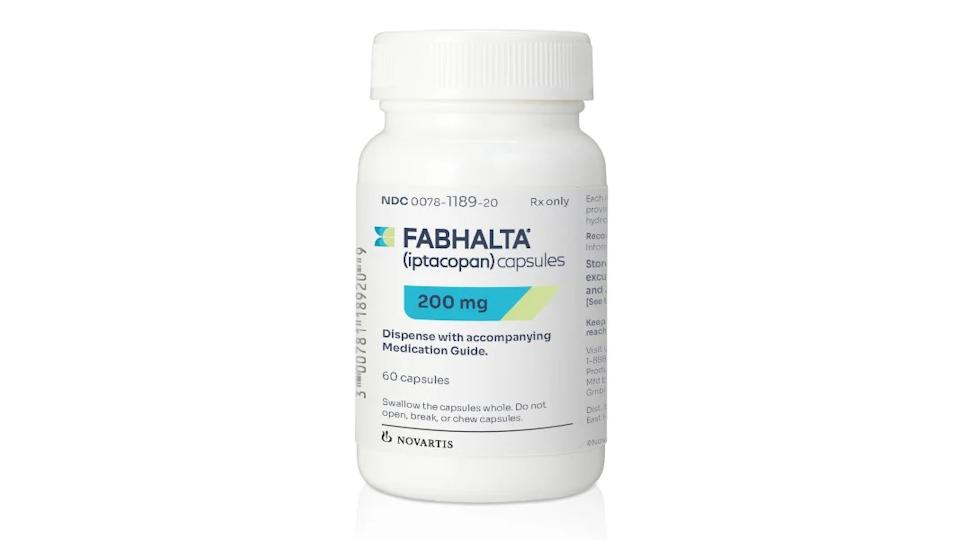Novartis' oral PNH drug Fabhalta rolls out in England, Wales

Novartis' targeted Factor B inhibitor Fabhalta – the first oral monotherapy for rare disease paroxysmal nocturnal haemoglobinuria (PNH) – has been cleared by NICE for use by the NHS in England and Wales.
Fabhalta (iptacopan) was approved by UK drugs regulator the MHRA last month, becoming an option for an estimated 220 out of around 950 people with PNH and haemolytic anaemia in the two countries, and NICE has recommended use of the drug in the same patients specified in the drug's license.
In PNH, the body's complement system destroys red blood cells, leading to anaemia and fatigue in around 80% of cases, with some patients needing regular blood transfusions.
Novartis said that Fabhalta will be available to eligible patients "immediately", with funding in England covered by the Innovative Medicines Fund (IMF), which covers therapies that have promise, but which need more data to confirm their benefits. The drug will be routinely commissioned in accordance with the Access to Medicines for Patients in Wales policy.
In Scotland, NICE's counterpart the SMC is also looking at Fabhalta for PNH and anaemia, but for now there is no published timeframe for that appraisal.
Current first-line therapies for PNH are AstraZeneca's complement C5 inhibitors Soliris (eculizumab) and Ultomiris (ravulizumab), which are used front line, but need to be delivered by infusion. It is estimated that between 20% and 50% of PNH patients treated with C5 inhibitors have anaemia that may require blood transfusions, so there is a need for new treatment options.
Apellis' C3 inhibitor Aspaveli (pegcetacoplan) is an option for C5 inhibitor non-responders only, while another new entrant is Roche's PiaSky (crovalimab), a C5 drug that can be self-administered by patients in a monthly subcutaneous injection. AZ's oral Factor D inhibitor Voydeya (danicopan), meanwhile, is used as an add-on to C5 inhibitor therapy in patients who don't respond to those drugs on their own
In the APPLY-PNH and APPOINT-PNH studies, Fabhalta was more effective than C5 inhibitors in improving haemoglobin levels and reducing the need for blood transfusions, with a higher proportion of patients on Novartis' drug transfusion-free after around six months' follow-up.
In its guidance, NICE says that for people who have not had a C5 inhibitor, the results suggesting superiority to Soliris and Ultomiris are "uncertain", but stronger for those who still have anaemia after C5 inhibitor therapy.
"PNH is hugely disruptive to patients and means they struggle to feel in control of their day-to-day lives," said patient expert Louise Peacock. "The risk of infection and a possible life-threatening crisis create an additional layer of anxiety for many – including myself."
She added: "As well as the logistical challenges involved with managing the disease, quality of life remains poor for many and it's very reassuring to see another treatment option become available on the NHS and hopefully help to transform lives."












